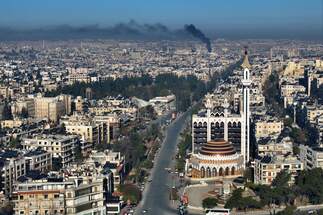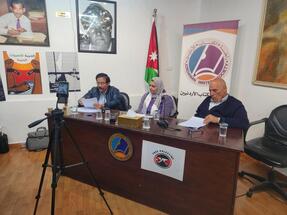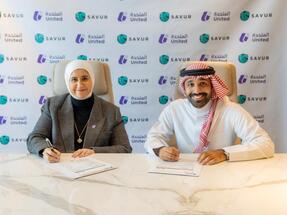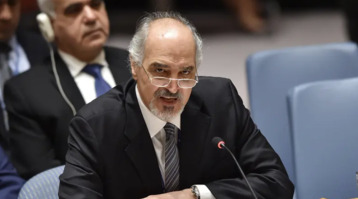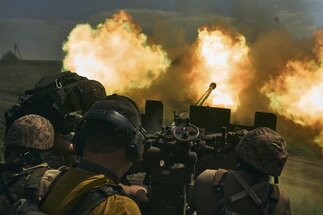-
Russia limits access to Facebook amid invasion of Ukraine
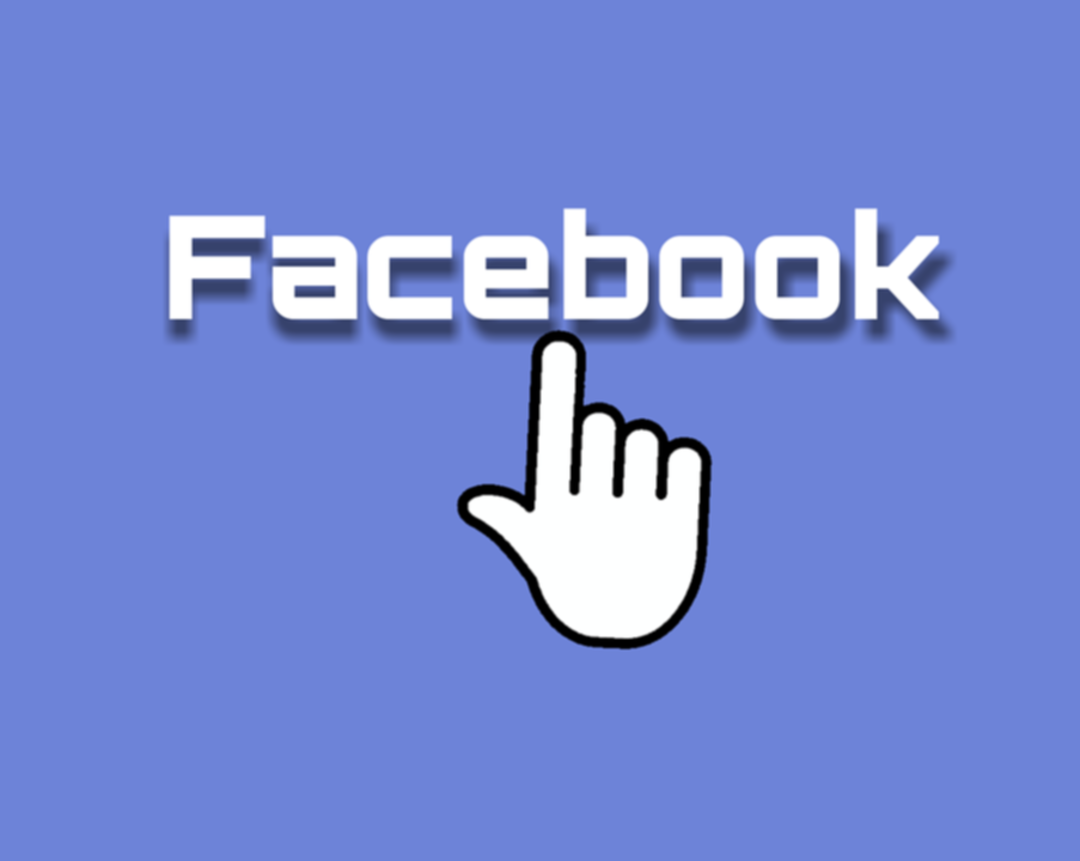
The BBC reported, Russia has limited access to Facebook over the platform's stance on the accounts of several Moscow-backed news outlets amid the invasion of Ukraine.
It said that Russia's communications regulator Roskomnadzor accused the network of "censorship" and violating "the rights and freedoms of Russian citizens".
Facebook said it had refused to stop fact-checking and labelling content from state-owned news organisations.
The move came a day after Russia launched its attack on Ukraine.
It is unclear what the regulator restrictions mean, or to what extent Facebook's parent company Meta's other platforms - WhatsApp, Facebook Messenger and Instagram - are affected.
The regulator had demanded Facebook lift the restrictions it placed on Thursday on state news agency RIA, state TV channel Zvezda, and pro-Kremlin news sites Lenta.Ru and Gazeta.Ru. It said that Meta had "ignored" these requests.
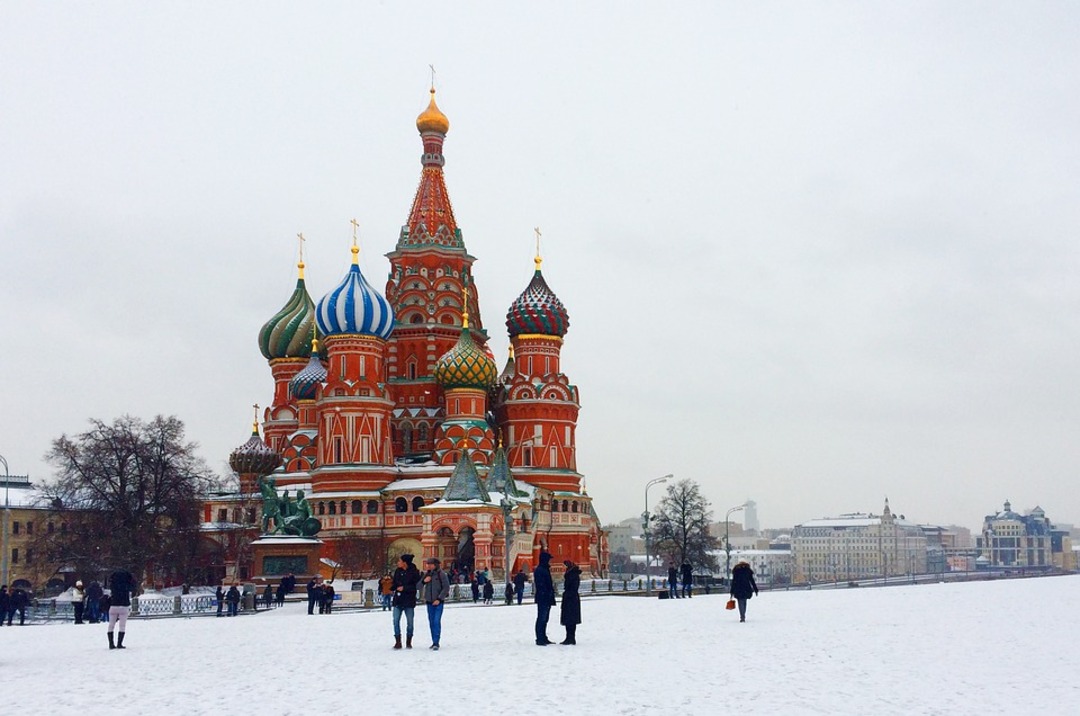
Sir Nick Clegg, vice-president of global affairs at Meta, said Russian authorities "ordered us to stop the independent fact-checking and labelling" the outlets' content. "We refused," he said.
But Sir Nick made clear he wanted Russians to continue to use Meta's platforms.
Boris Johnson: UK to impose asset freeze on Russia's Putin and Lavrov
He said: "Ordinary Russians are using our apps to express themselves and organise for action," and the company wants "them to continue to make their voices heard".
Many state-owned media outlets in Russia have painted a largely positive picture of Russian military advances in Ukraine, calling the invasion a "special military operation" that had been forced on Moscow.
On Thursday Meta said it had set up a "special operations centre" to monitor content about the conflict in Ukraine.
Kyiv residents clear away rubble and await Russian assault
The BBC said, Russia has its own Facebook equivalents, VK and Odnoklassniki, but Facebook is also popular in the country - as is Meta-owned Instagram.
On Friday, US Senator Mark Warner said Facebook, YouTube and other social media services had "a clear responsibility to ensure that your products are not used to facilitate human rights abuses".
Meta, has been under pressure to label misinformation - and has been working with outside fact-checkers, including Reuters.
Moscow has also increased pressure on domestic media, threatening to block reports that contain what it describes as "false information" regarding its invasion of Ukraine.
UN: Russian invasion could drive 5 million Ukrainians to flee abroad
Twitter also told the BBC that its safety and integrity teams were "disrupting attempts to amplify false and misleading information and to advance the speed and scale of our enforcement".
Source: BBC
You May Also Like
Popular Posts
Caricature
BENEFIT Sponsors Gulf Uni...
- April 17, 2025
BENEFIT, the Kingdom’s innovator and leading company in Fintech and electronic financial transactions service, has announced its sponsorship of the “Innovation and Sustainable Technology Solutions Competition (GU - IST Solutions), hosted by Gulf University at its main campus.
This strategic sponsorship reflects BENEFIT’s active role in advancing technological innovation and fostering sustainable solutions to future challenges. It also seeks to empower Bahraini youth by enhancing their skills, capabilities, and competitiveness in innovation and solution development—contributing meaningfully to the broader goals of sustainable development across all sectors.
As part of BENEFIT’s active involvement in the competition, the company has announced that Hanan Abdulla Hasan, Senior Manager of Public Relations and Communication, will serve on the competition’s supervisory committee. Her upcoming participation reflects BENEFIT’s forward-looking commitment to championing academic and professional excellence.
Commenting on the occasion, Hanan Abdulla Hasan, Senior Manager of Public Relations and Communication at BENEFIT, said, “We are privileged to support this pioneering initiative, which aligns seamlessly with BENEFIT’s enduring commitment to fostering innovation and nurturing the potential of Bahrain’s youth. Our participation is rooted in a deep sense of social responsibility and a firm belief in the pivotal role of innovation in shaping a sustainable future. Through such platforms, we seek to empower the next generation with the knowledge, skills, and foresight required to develop impactful solutions that address future challenges, in line with the United Nations Sustainable Development Goals 2030.”
Dr. Aseel Al Ayash Dean of the College of Engineering in Gulf University commented, “We extend our sincere gratitude to BENEFIT for their generous sponsorship and support of the Innovation and Sustainable Technology Solutions Competition. This contribution plays an instrumental role in helping us achieve the strategic goals of this initiative, namely, cultivating a culture of innovation and sustainability, encouraging efforts that address the imperatives of sustainable development, and enhancing the practical and professional capabilities of our students and participants.”
The event will bring together a diverse spectrum of participants, including secondary school students, university undergraduates, engineers, industry professionals, entrepreneurs, academic researchers, and subject matter experts representing a wide range of disciplines.
The competition seeks to inspire participants to develop and present innovative, sustainable technologies aimed at addressing pressing environmental, social, and economic challenges. It encourages the formulation of business models that integrate advanced technological solutions with core principles of sustainability. Moreover, it serves as a platform for emerging leaders, entrepreneurs, and innovators to contribute to the advancement of the Sustainable Development Goals, promote the ethos of responsible technology, and demonstrate its transformative potential across various sectors.
Attendees will have the opportunity to view a series of project presentations submitted by participants, covering diverse areas such as eco-friendly product design, smart and sustainable innovations, renewable energy technologies, water conservation and management, waste minimisation and recycling, green architectural solutions, and sustainable transportation systems. Outstanding projects will be formally recognised and awarded at the conclusion of the event.
opinion
Report
ads
Newsletter
Subscribe to our mailing list to get the new updates!


